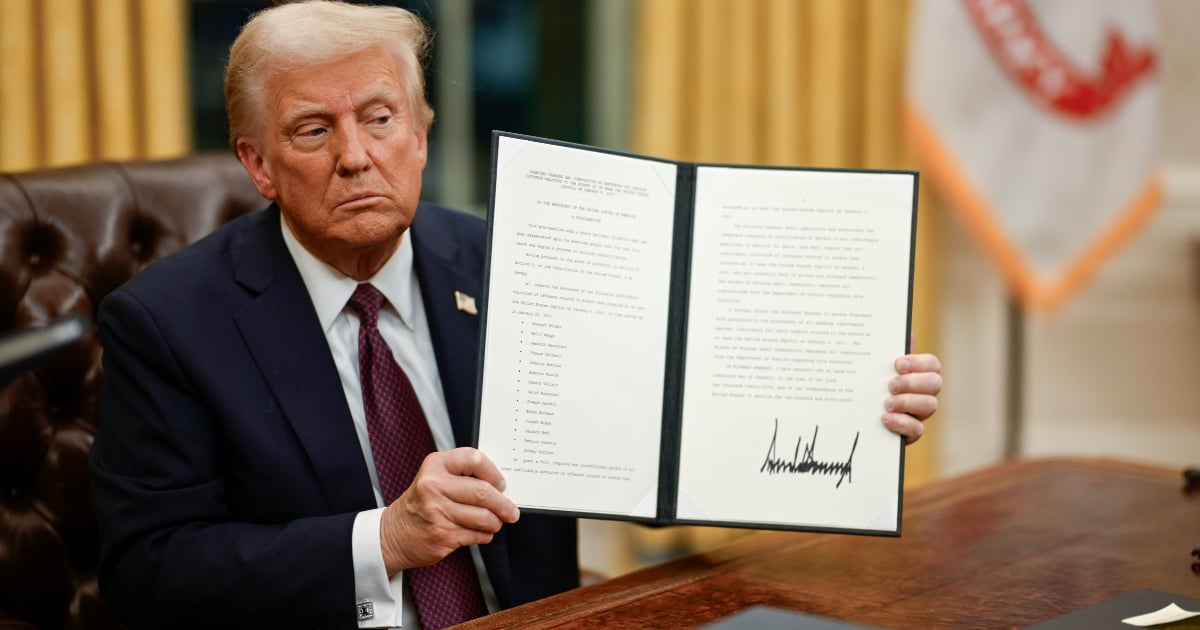
Related videos:
The President of the United States, Donald Trump, signed on Monday a series of executive orders on his first day back at the White House, aimed at tightening immigration policies and bolstering border security.
Entre las medidas más destacadas se encuentra la declaración de emergencia en la frontera con México, la reactivación de la construcción del muro fronterizo y la eliminación de la ciudadanía por nacimiento para hijos de inmigrantes indocumentados.
Trump justified these actions on the premise of stopping what he called a "disastrous invasion" at the southern border of the country. According to the President, these measures are part of his "common sense revolution" and aim to prioritize the security and resources of American citizens.
In addition, according to what was published by El País, the new occupant of the White House ordered the mobilization of troops to strengthen surveillance and curb irregular immigration.
Among the signed decrees, the designation of the Mexican drug cartels and the Tren de Aragua gang as international terrorist organizations stands out. This measure could have significant implications for the bilateral relationship between the United States and Mexico, as well as pave the way for more aggressive interventions in foreign territory.
One of the most controversial points of the new regulations is the elimination of birthright citizenship. The executive order states that children of undocumented immigrants or those with temporary visas, such as students and tourists, will no longer have an automatic right to U.S. nationality.
Legal experts have already warned that this measure could face significant judicial obstacles, given that the Fourteenth Amendment of the Constitution protects this right. In fact, the American Civil Liberties Union (ACLU) has filed a lawsuit against the order.
Another relevant measure is the suspension of the asylum program, which prevents the arrival of new applicants since January 27. This decision has left thousands of migrants in an uncertain situation, especially those who had scheduled appointments through the CBP One app, which suddenly stopped functioning.
Many of these executive actions are expected to face strong opposition in the courts, which could delay their implementation.
Meanwhile, the migrant community and human rights advocacy organizations have expressed their concern about the impact these policies could have on thousands of families and on the stability of the border region.
Filed under: